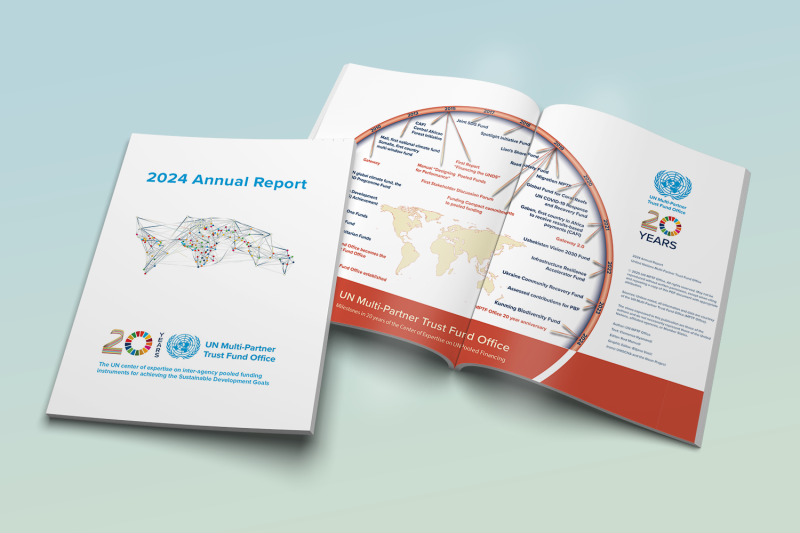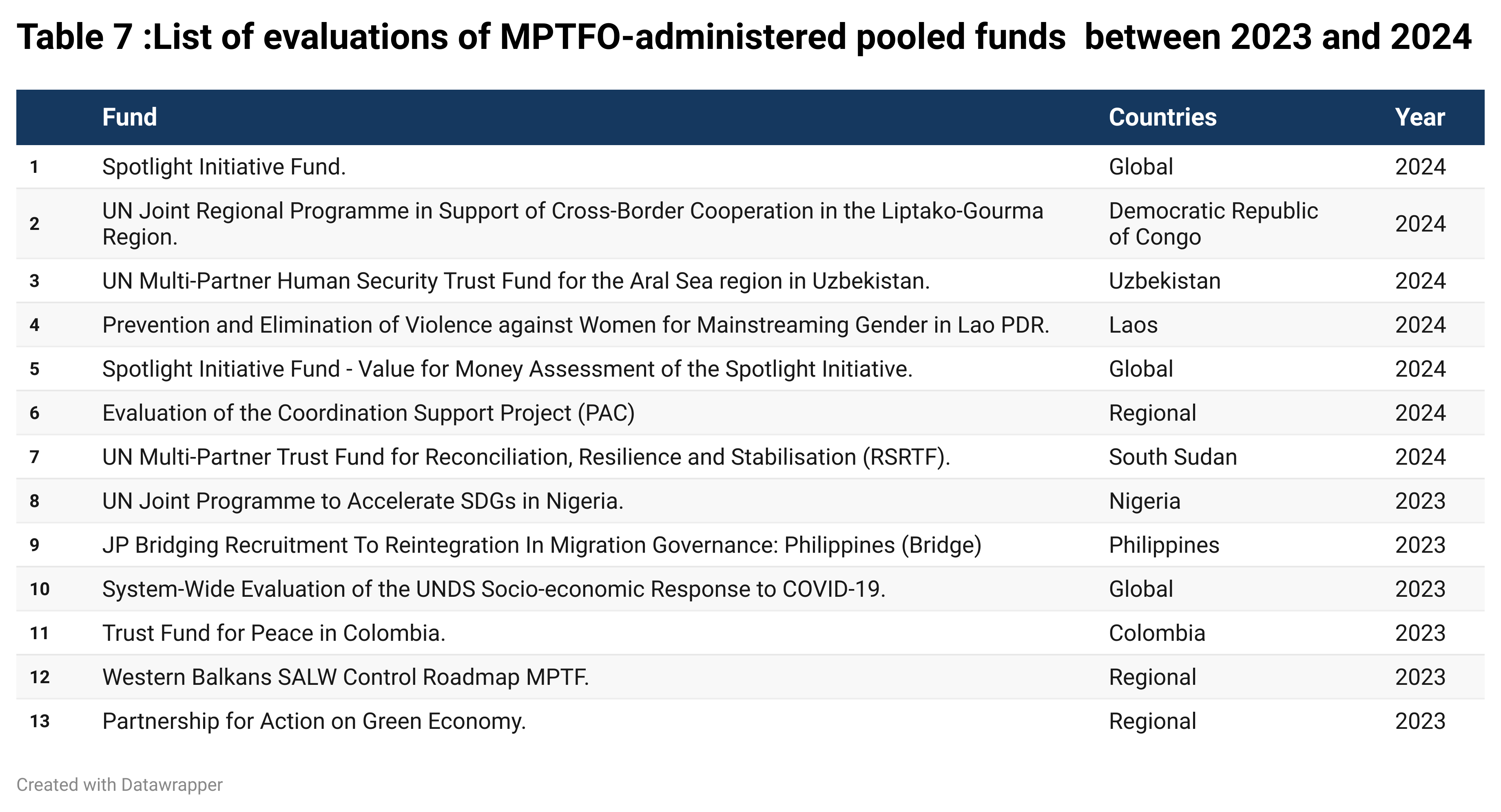

Evaluations play a significant role in effective programme planning, accountability, and learning. They provide evidence of achieved results and help uncover lessons learned and best practices. In UN inter-agency pooled funds, participating UN organizations (PUNOs) assess programmes based on their own evaluation policies and guidelines, in line with the ‘pass-through’ mechanism governing pooled funds.

We sat down with Clemence Nyamandi, the MPTFO’s Monitoring and Evaluation Specialist, to hear about how evaluations of pooled funds work, and unpack some key lessons from 13 independent evaluations commissioned by Fund Secretariats and contributors over the past two years.
This is extracted from the 2024 Annual Report, as is the table below.

Q: Why are evaluations so important in the context of pooled funds?
A: Evaluations help us understand the real impact of our work. They provide evidence of results, uncover best practices, and guide future programming. For pooled funds, they also help ensure transparency – a key principle for how pooled funds build trust among partners – and shared learning across agencies and stakeholders.
Q: How are evaluations conducted for UN inter-agency pooled funds, and what is the role of the MPTFO in this process?
A: Participating UN Organizations (PUNOs) lead evaluations based on their own policies and guidelines. They develop Terms of Reference collaboratively with stakeholders, and all reports are shared in at least two places: via the Gateway Integrated Platform (GWIP); and uploaded to the UN Evaluation Group (UNEG) database; and often shared on Fund’s own channels and websites.
Within this, the MPTFO provides knowledge services that support the analysis of evaluation findings. This contributes to effective knowledge management by ensuring the dissemination of lessons learned and best practices across the UN system in the context of pooled funding.
Q: What did evaluations say about the role of pooled funds in fostering capacity development and local ownership?
A: First of all, UN-led pooled funds foster the UN’s special relationship with governments and local ownership by having governments buy in throughout the life cycle of the fund, starting with representation in the decision-making governance body of the fund. They also showed how pooled funds support local policy development and strengthen national systems. At the national level, pooled funds helped enhance aid effectiveness, reinforce alignment and constructive policy dialogue with governments, and ensure coherence among donors. On top of this, evaluations highlighted pooled funds enabling new approaches to gender equality, child protection, and crisis response.
In fragile settings, pooled funds were found to be particularly effective by efficiently utilizing the UN’s delivery systems, normative roles, and risk-sharing capabilities.
Q: Based on the best practices of pooled funds from recent evaluations, what are the factors influencing the quality of pooled fund programming?
A: There are several key factors: